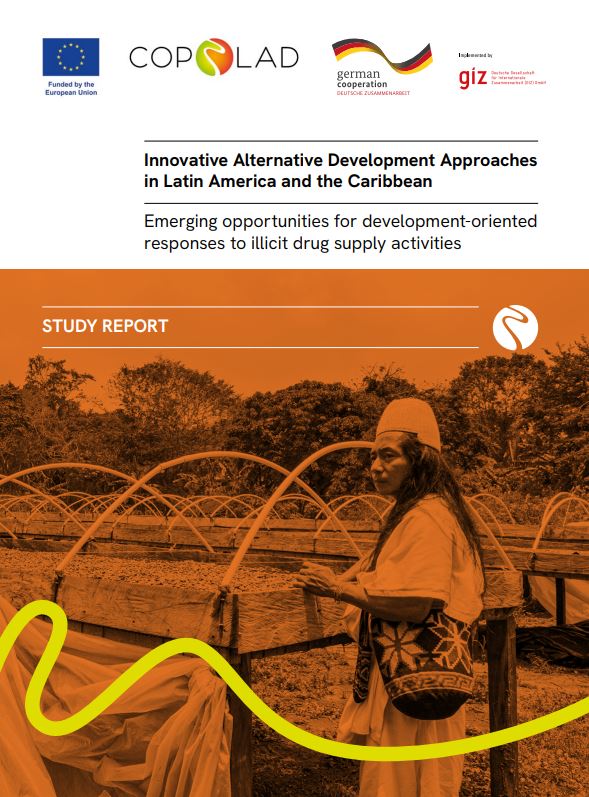Alternative Development (AD) is a strategy that is part of the policy to control and/or reduce illicit crops in Member States that produce the raw material for the production of illicit drugs; and, in turn, contributes to the reduction of the supply of illicit drugs. It is a dynamic, composite concept and tool that relies heavily on testing and evidence gathering to nurture and advance. Introduced as a niche supply reduction tool in drug control policy, AD has become a pillar of international drug policy, recognized for addressing the root causes of drug supply activities through a development-based approach. Several countries, mainly in Latin America and the Caribbean, express a growing interest in exploring new applications of AD beyond traditional rural settings, terrains and drug policy environments (moving from rural to urban areas, border areas, conflict-affected territories, ethnic and indigenous territories, etc.).
Among the 17 countries of COPOLAD III 1 , and its Working Group on “Alternative, Integral and Sustainable Development” 2 , there has been an explicit demand for the systematization of Innovative Alternative Development Approaches (IADA) experiences on which to base an operational and conceptual reflection.
Exploratory study
Following this proposal, the GIZ Rural Development Sector Project, with COPOLAD III partners and stakeholders, commissioned this exploratory study to identify and reflect on the opportunities, challenges and stakes of innovative Alternative Development beyond traditional models and rural contexts of illicit crop cultivation. The study builds on existing knowledge and focuses on the relevance, adaptability and feasibility of AD, in diverse terrains and more diversified social contexts affected by illicit drug supply activities.
The analytical framework of the study combines socio-political tools of public policy analysis and policy evaluation instruments based on the main OECD DAC criteria for the evaluation of development interventions. Conducted between September 2023 and March 2024, it analyzes different cases of emerging DA terrains across the LAC region to refine the understanding of IADA and, to the extent possible, disentangle existing challenges, added value and emerging features of operationalization.






